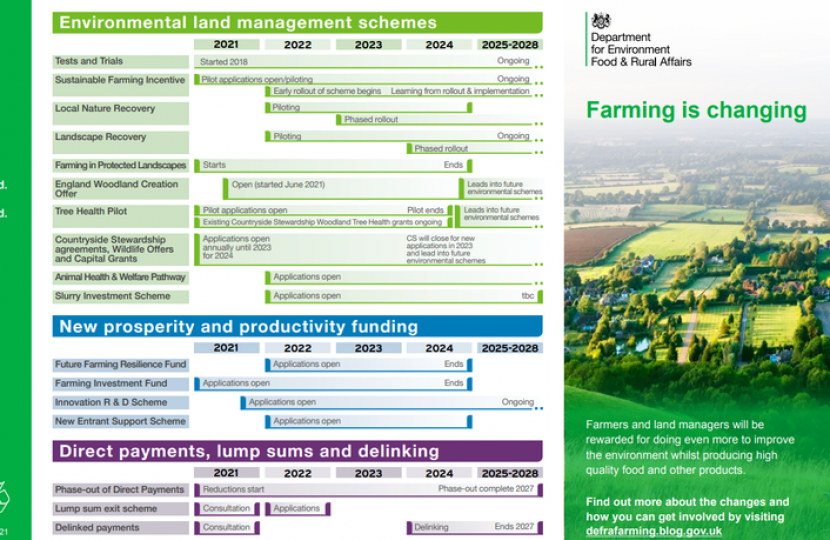
This week, the government published an update to “The Path to Sustainable Farming: Agricultural Transition Plan”, first published in November, outlining the principles for payments under environmental schemes and the Sustainable Farming Incentive.
Over this Parliament, the government has committed to maintaining the current levels of investment in farming of £2.4bn per year, on average. Unfair and ineffective Direct Payments are being gradually phased out to move to a fairer system, where the funding released will be redirected back to farmers through environmental land management schemes which will help boost productivity and reward environmental improvements.
30% of the funding released from Direct Payments for environmental and climate outcomes will be made available for farm level actions through schemes such as the Sustainable Farming Incentive. Farmers will also be eligible for locally-specific and landscape-level schemes through Local Nature Recovery and Landscape Recovery.
The Sustainable Farming Incentive will be the first of three environmental land management schemes to be rolled out and will include actions to improve soil health and water quality, enhance hedgerows and promote integrated pest management. It will also help to accelerate the widespread adoption of more sustainable approaches on all types of farms, building on the excellent practices that already happen on many farms. These include maintaining and enhancing the natural environment, reducing carbon emissions, and improving the health and welfare of farmed animals.
As part of this package, the government is introducing two soils standards from 2022, through which it will be offering payments for farmers to take better care of their soils – in the interests of food production, carbon sequestration, water quality, flood risk mitigation and enhanced biodiversity. This sets out the government's initial thinking on how 30% of overall funding will be spent on rewarding sustainable approaches to farming and delivering environmental improvements on a farm level.
The government is also offering a new Annual Health and Welfare Review. For many farmers, the Annual Health and Welfare Review will be their first step on the Animal Health and Welfare Pathway, which is industry and government’s shared ambition to produce healthier, higher welfare animals.
The government is also publishing the new Payment Principles. This sets out the approach to environmental scheme payments throughout the transition, which includes new environmental land management schemes, mature ones like Countryside Stewardship, and transitional schemes such as Farming in Protected Landscapes.
Richard Fuller, MP for North East Bedfordshire, said:
These updates will help prepare farmers for the changes to come – enabling them to make the right decisions for them and their business
Well managed soils can lead to increased biodiversity, improved water quality and reduced carbon emissions. The new Sustainable Farming Incentive will eventually be open to every farmer in England and will incentivise a shift towards more sustainable soil and grassland management.
A leaflet setting out the changes can be read here. More information can be found here.

